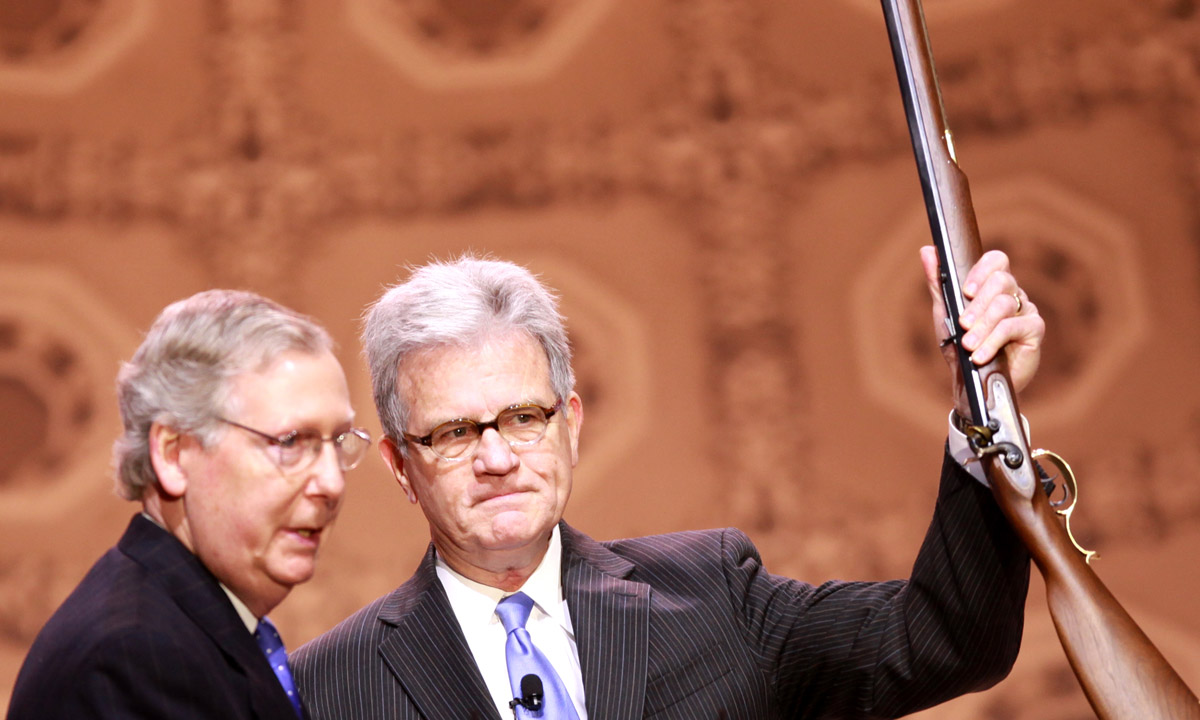In Tom Coburn’s latest book, Smashing the DC Monopoly: Using Article v to Restore Freedom and Stop Runaway Government, details a lot about his time on The Hill, recounting how money is the root of all evil, among other things, in Washington.
His fight for transparency was often shut down by his peers. The man even had threats against him for standing in the way of some high profile politicians and their money.
One key thing within the book is the argument of the culture war’s effect on Washington; too many politicians playing too many games. Especially when there are some with huge net worths on $150k salaries…
As reported by Mark Hemingway for The Federalist:
Alaska Senator Ted Stevens once said he would “be taken out of here on a stretcher” if Coburn succeeded in denying him an egregious $450 million earmark for his home state. Coburn’s amendment to deny Stevens the earmark that day failed, because of course it did. Nonetheless, Coburn lost the battle but won the war. His leadership in opposing earmarks made them an issue with Tea Party voters, and years later Congress abandoned the practice.
[…]
Coburn’s book does plenty of dishing on dysfunction in the cloakrooms, but that’s not really what it’s about. The book really serves two purposes. The first is to convince ordinary Americans that the problems in Washington are so dire they require dramatic action that elected politicians are unwilling to take. The second is to explain how ordinary voters and state politicians have the power to exploit an obscure constitutional process, known as an Article V convention, to bypass Washington and amend the Constitution to institute badly needed reforms, such as a balanced budget amendment and term limits.
On the first point, Coburn has an exceptionally clear grasp of constitutional principles. That is good, because while ordinary Americans are probably well aware that the federal government has created monumental problems, the causes and solutions aren’t immediately obvious without some necessary civic education, involving both practical and theoretical matters.
[…]
“Reflecting the nation’s new priorities, the two-to-one defense dollars to domestic entitlements in 1961 [when Eisenhower warned of the “military-industrial complex”] had been more than reversed by 2010 with a three-to-one ratio of transfer payments to national defense spending,” he writes. “It should be noted that the Constitution specifically empowers the federal government to provide for the nation’s defense but nowhere cites spending taxpayer dollars on entitlement programs.” Liberals can take heart in the fact that Coburn also has a strong track record of telling the Pentagon to tighten its belt, in addition to warning about entitlement and welfare program spending.
[…]
Much of the book, however, is dedicated to explaining what Coburn believes is America’s last best hope: an Article V convention. While it’s well-known that constitutional amendments Congress passes have to be ratified by the states, hardly any Americans are aware that the Constitution includes a provision that allows “the application of the legislatures of two thirds of the several states [to] call a convention for proposing amendments, which, in either case, shall be valid to all intents and purposes, as part of this Constitution, when ratified by the legislatures of three fourths of the several states.” In other words, if the structural incentives in Washington are such that members of Congress won’t, say, willingly vote themselves out of office by passing term limits, state legislatures can force it on them.
Coburn makes a convincing case that the founders always intended this provision to be a significant check on the growth and abuses of the federal government, and it’s actually surprising that this method for passing amendments has never been exercised. Hamilton argued in the Federalist papers that this mechanism was put in place so Americans could “safely rely on the disposition of the state legislatures to erect barriers against the encroachments of the national authority.”
[…]
A lot of people voted for Trump on the belief that he would bring truly radical change to Washington, and undoubtedly Coburn has applauded at least some of his swamp-draining. Trump notwithstanding, Coburn is still right to point out that so much of what’s happening in DC is still funny business as usual. That’s because, as ever, the ultimate problem with American politics is us. If you deny that a solution to our perilous predicament won’t be found in Washington, well, Tom Coburn would like to have several thousand words with you—and carving out a few hours to read Smashing the DC Monopoly is well worth your time.


